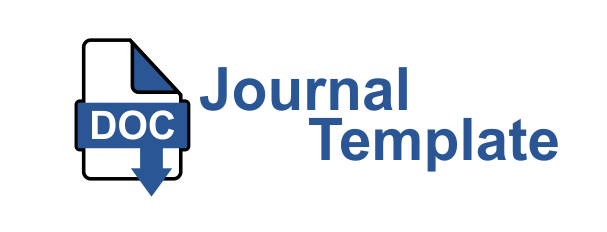Increasing Knowledge Of Vaccination For Students At Bina Putra Orphanage
Abstract
Knowledge about vaccination is rarely obtained at every level of school, this causes students' knowledge about vaccination, especially COVID-19, to be lacking. This requires attention and the community service program that is carried out is an information delivery program and is useful for increasing knowledge about vaccination, especially COVID-19. The program carried out is to increase knowledge about vaccination for students at the Bina Putra Bantul Orphanage, Yogyakarta. Delivery of information about the benefits of vaccination is currently experiencing a decline resulting in ignorance among a group of people. Activities that have been carried out are counseling programs with face-to-face lectures. Submission of material is done with the help of a presentation screen and a video. The results of the activities that have been carried out are an increase in knowledge, as measured by tools in the form of pretest and posttest questionnaires; the result is that the percentage of students who answered the questions correctly increased by 54% (correct score <10), 58% (10≤correct score≤15), and 93% (correct score>15). Participants who took part in this program were 37 students. This extension program was concluded to be able to increase knowledge about vaccination in groups of students at the SMK level.
Keywords: Knowledge, Vaccination, Counseling
Downloads
References
Afrian, N., Widayati, D., & Setyorini, D. (2018). Pengembangan Model Motivasi Jumanior (Juru Pemantau Jentik Junior) dalam Perilaku PSN (Pemberantasan Sarang Nyamuk) Aedes aegypti Berbasis Intergrasi Model Lawrance Green dan Mc. Clelleand. Journal of Health Sciences, 9(2), 129–138. https://doi.org/10.33086/jhs.v9i2.174
Azam, M., Azinar, M., & Fibriana, A. I. (2016). Analisis Kebutuhan dan Perancangan “Ronda Jentik†sebagai Model Pemberdayaan masyarakat dalam Pemberantasan Sarang Nyamuk. Unnes Journal of Public Health, 5(4), 298–305. http:/ /journal.unnes.ac.id/sju/index.php/ujph
Cahyaningtyas, D. K., Rospia, E. D., Rofita, D., Makmun, I., Amilia, R., Harahap, A. P., & Shafila, S. (2021). Program Vaksinasi Massal pada Siswa SMA, SMK dan SLB di Dinas Pendidikan dan Kebudayaan Provinsi Nusa Tenggara Barat 2021. SELAPARANG, 5(1), 682–684.
Dinas Kesehatan Daerah Istimewa Yogyakarta. (2021). Situasi Covid-19 di DIY Per 1 Maret 2021. Www.Dinkes.Jogprov.Go.Id, 1–7. https://www.dinkes.jogjaprov.go.id/berita/detail/situasi-covid-19-di-diy-per-1-maret-2021
Dwiyanti, N., & Rahayuni, N. W. S. (2022). Hubungan Tingkat Pengetahuan Tentang Vaksin Covid-19 Terhadap Minat Anak Usia 12-17 Tahun Dalam Melaksanakan Vaksinasi Covid-19 Di Desa Kutuh. MIDWINERSLION: Jurnal Kesehatan STIKes Buleleng, 7(1), 6–10.
Ginting, J. M., Mahfudin, R. K., Yong, V., Aflizar, M., R., O., & Prayoga, I. W. . (2021). Penggunaan Aplikasi Quizizz dan Kahoot serta Penyuluhan Vaksinasi COVID-19. The 3rd National Conference of Community Service Project 2021, 3(1), 312–316.
Hendri, J., Prasetyowati, H., Hodijah, D. N., & Sulaeman, R. P. (2020). Pengetahuan Demam Berdarah Dengue pada Siswa di Berbagai Level Pendidikan Wilayah Pangandaran. ASPIRATOR, 12(1), 53–61. https://doi.org/10.22435/asp.v12i1.2838
Ilmaskal, R., Asyari, D. P., Wati, L., & Putri, A. E. (2022). Peran Perguruan Tinggi Dalam Peningkatan Cakupan Vaksinasi di Kota Padang. ABDIMAS GALUH, 4(1), 570–576.
Kementerian Pendidikan dan Kebudayaan. (2020). Jumlah Data Satuan Pendidikan (Sekolah) per Kabupaten/ Kota Kabupaten Bantul. https://referensi.data.kemdikbud.go.id/index11.php?kode=040100&level=2
Khun, S., & Manderson, L. (2007). Community and School-Based Health Education for Dengue Control in Rural Cambodia: A Process Evaluation. PLoS Neglected Tropical Disease, 1(3), 1–10. https://doi.org/0.1371/journal.pntd.0000143
Maulana, S., Musthofa, F., & Komariah, M. (2021). Studi Kasus Perilaku Penolakan Vaksin Covid-19 Di Indonesia: Analisis Penyebab Dan Strategi Intervensi Berdasarkan Perspektif Teori Planned Behavior. (Jurnal Ilmiah Mahasiswa Kesehatan Masyarakat), 6(3), 359–363. https://doi.org/10.37887/jimkesmas.v6i3.20178
Octafia, L. A. (2021). Vaksin Covid-19: Perdebatan, Persepsi dan Pilihan. Emik, 4(2), 160–174. https://doi.org/10.46918/emik.v4i2.1134
Pratiwi, A. S., Mutiara, H., & Fakhruddin, H. (2018). Perbedaan Peningkatan Pengetahuan tentang Demam Berdarah Dengue antara Metode Ceramah dan Video Animasi Pada Murid Kelas V dan VI 2 SD Negeri 12 Metro Pusat. Majority, 7(3), 41–48.
Shintia, S., & Maharani, W. (2019). Kemampuan Resiliensi Individu dalam Menghadapi Psychological Distress Siswa-siswi SMA Jakarta di Masa Pandemi. Prosiding Konferensi Nasional Universitas Nadhlatul Ulama Indonesia, 45–54.
Trisnaniyanti, I., Prabandari, Y. S., & Citraningsih, Y. (2010). Persepsi dan Aktivitas Kader PSN DBD Terhadap Pencegahan dan Pemberantasan Demam Berdarah Dengue. Berita Kedokteran Masyarakat, 26(3), 132–137.
Widyaningrum, E. A., Sugiyartono, S., PDW, K. S., P, E. T., N, L., Fauziyah, R., & M, B. (2021). Efektivitas Penyuluhan Online melalui Grup Whatsapp Terhadap Peningkatan Pengetahuan Swamwdikasi yang Aman di Masa Pandemi dan Vaksinasi COVID-19. Seminar Hasil Pengabdian Masyarakat Tahun 2021.
Copyright (c) 2022 Marius Jati, Eva Runi Khristiani, Muryani

This work is licensed under a Creative Commons Attribution 4.0 International License.
Authors who publish with this journal agree to the following terms:
- Authors retain copyright and grant the journal right of first publication with the work simultaneously licensed under a Creative Commons Attribution License (CC-BY) that allows others to share the work with an acknowledgment of the work's authorship and initial publication in this journal.
- Authors are able to enter into separate, additional contractual arrangements for the non-exclusive distribution of the journal's published version of the work (e.g., post it to an institutional repository or publish it in a book), with an acknowledgment of its initial publication in this journal.
- Authors are permitted and encouraged to post their work online (e.g., in institutional repositories or on their website) prior to and during the submission process, as it can lead to productive exchanges, as well as earlier and greater citation of published work (See The Effect of Open Access).











